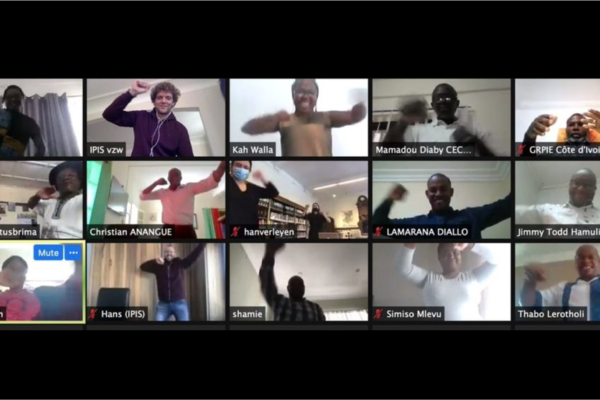
KP CSC Highlights of 2021
January 12, 2022At the start of this new year the Kimberley Process Civil Society Coalition looks back on the previous one with these highlights from 2021

WEBINAR ALERT: Conflict diamonds are real, real talk is rare & affected communities want answers
October 8, 2021On 20 October 2021, the Kimberley Process Civil Society Coalition (KP CSC) is convening its second webinar of 2021 in the conversation on “Conflict diamonds are real, real talk is rare”. IPIS, as part of the KP CSC, is co-hosting this 90-minute webinar. The webinar is an opportunity for the diamond and jewellery industries to continue engaging with the Coalition directly and learn more about what
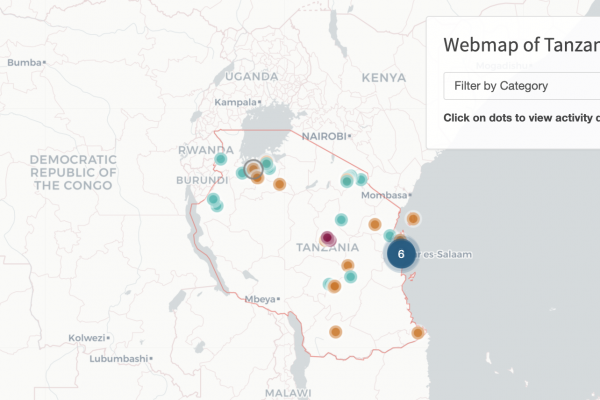
Webmap “Business and Human Rights in Tanzania”
August 18, 2021This interactive map presents an overview of the main project activities and output that IPIS and its project partners CHRAGG and BHRT have delivered as part of their project to “Improve monitoring, research and dialogue on Business and Human Rights in Tanzania ”. This project ran from December 2017 until February 2021. The map locates project activities in Tanzania and allows you to find out more
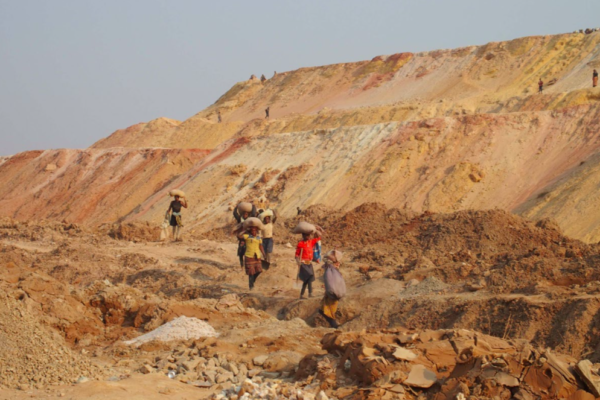
IPIS Due Diligence series – Comparative analysis between cobalt and 3T sourcing from the DRC
July 26, 2021This report compares the supply chains and traceability of 3T and cobalt ores in order to identify similarities, differences, and lessons learned from the decade of 3T experience in responsible sourcing, for the emerging cobalt initiatives. The experience of regulating responsible sourcing in the 3T sector has taught us the importance of engaging producing countries from the start of the draftin
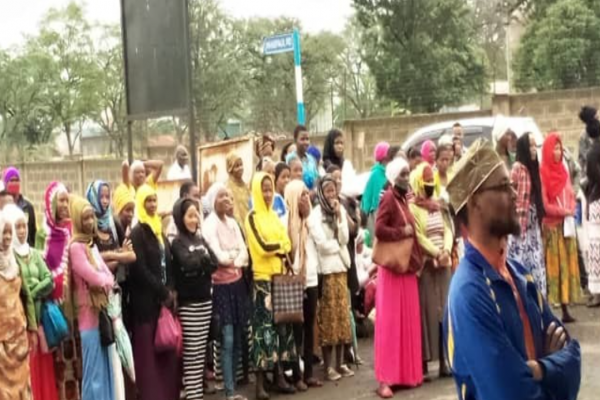
An updated human rights complaint system for Tanzania
July 20, 2021Over the past three years, IPIS has been collaborating with Tanzania’s Commission for Human Rights and Good Governance (CHRAGG) to create a new system that allows the public to lodge human rights grievances with CHRAGG. This work is part of the EU-funded project “Improving monitoring, research and dialogue on Business and Human Rights in Tanzania”. As Tanzania’s National Human Rights Institution,
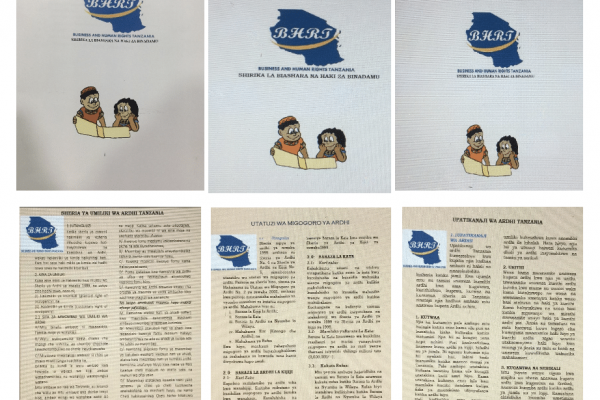
Knowing your rights: awareness raising on land and environmental rights and access to justice in rural communities of Tanzania
May 3, 2021As part of the EU-funded project “Improving monitoring, research and dialogue on Business and Human Rights in Tanzania”, Business and Human Rights Tanzania (BHRT) has been conducting public education campaigns in remote rural areas of Tanzania. This activity aimed to support individuals and communities affected by or vulnerable to corporate harm to claim their rights and access justice in order to
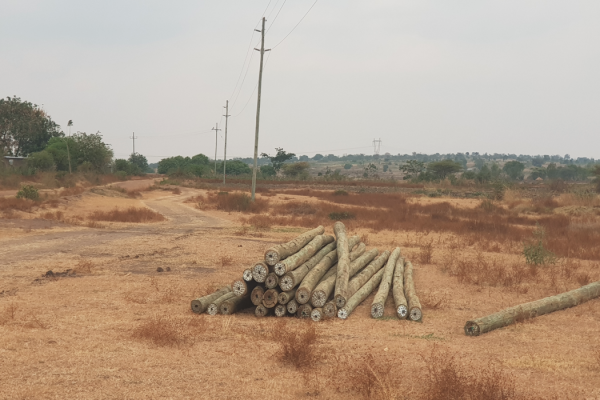
Voices from Tanzania – The human rights impact of large-scale infrastructure projects: Case studies on Business & Human Rights
April 1, 2021The Voices from Tanzania series supports local field-based studies into business and human rights topics in Tanzania. This third volume presents five cases studies that focus on the human rights impact of large-scale infrastructure projects. Download the study (EN) Pakta muhtasari kwa kiswahili (SW) The studies assessed the human rights impact of 3 energy supply projects– the East African Crude Oi
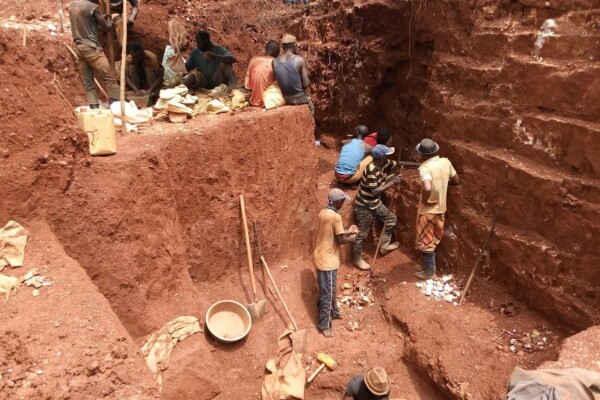
Due diligence impact assessment in eastern DRC
March 18, 2021Together with Project on Resources and Governance (PRG) at UCLA, Sub-Saharan Field Research (SFR), and Ulula, IPIS carried out a study to evaluate the impacts of due diligence programs on artisanal mining communities in the eastern Democratic Republic of Congo. Over the last decade, efforts to eliminate so-called “conflict minerals” have focused on denying access to world markets and global supply
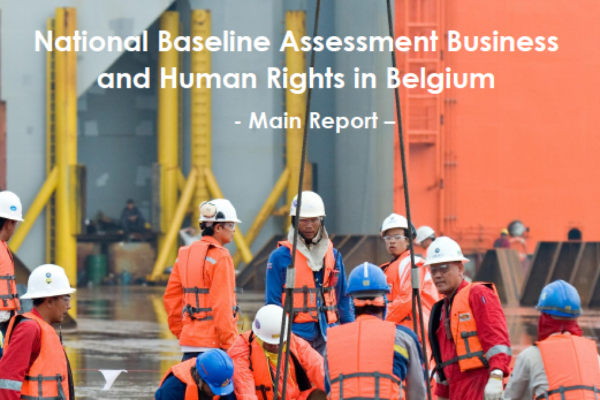
National Baseline Assessment – Business and Human Rights in Belgium
March 17, 2021IPIS contributed to the Belgian National Baseline Assessment (NBA). The report covers the findings and recommendations of the NBA. The NBA charts the progress made by Belgian authorities and companies since the launch of Belgium’s first National Action Plan on Business and Human Rights, in June 2017. The research was commissioned by the Belgian Federal Institute for Sustainable Developme
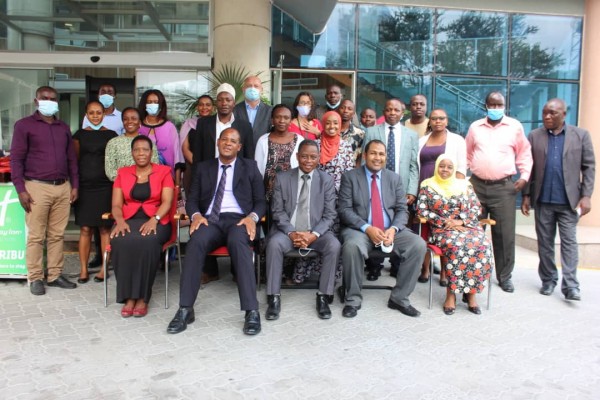
Report on the Third Multi-Stakeholder Conference on Business and Human Rights in Tanzania
February 27, 2021This report presents a summary of the outcomes of the Third Multi-stakeholder Conference on Business and Human Rights in Tanzania which was held in Dar es Salaam, Tanzania on the 17th of February 2021, at Holliday Inn Hotel. The conference was part of the project “Improving, monitoring, research and dialogue on business and human rights in Tanzania”, which aims at building local and

Third Multi-Stakeholder Conference on Business and Human Rights in Tanzania stresses the need for awareness, stakeholder engagement and a National Action Plan
February 24, 2021On the 17th of February 2021, around 80 key stakeholders from civil society, communities, business and government agencies from Tanzania mainland and Zanzibar gathered at the Holiday Inn Hotel in Dar es Salaam for the third annual multi-stakeholder conference on Business & Human Rights in Tanzania. This event was organised by the Tanzanian Commission for Human Rights and Good Governa
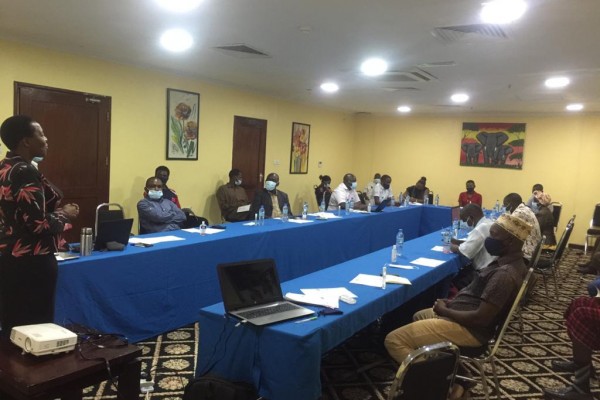
Discussing Business and Human Rights in Tanzania: stakeholder workshops
February 23, 2021On 16 February 2021, Business and Human Rights Tanzania (BHRT), the International Peace Information Service (IPIS) and the Commission for Human Rights and good Goverance (CHRAGG) held a series of bilateral consultations and workshops with civil society and business stakeholders in preparation of the third annual Multi-stakeholder Conference on Business and Human Rights in Tanzania, planned on 17 F

Conflict diamonds are real, real talk is rare
February 12, 2021IPIS is a member of the Kimberley Process Civil Society Coalition which works for better rights of communities affected by diamond mining. A new video of the Coalition highlights that conflict diamonds are not a thing of the past. The video shows jewelers the testimonies of Progress, Héritier and Ibrahim, community members from Zimbabwe, the Democratic Republic of Congo and Sierra Leone, who suffe
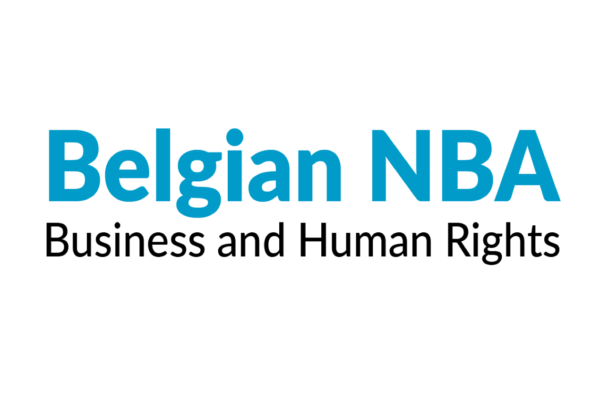
Stakeholder Consultation on the Belgian National Baseline Assessment on Business & Human Rights
February 3, 2021On February 10, 2021, HIVA-KU Leuven, The Law and Development Research Group and IPIS will hold a stakeholder consultation on the Belgian National Baseline Assessment on Business & Human Rights. Discover the programme and register here.

Agoria Academy on Supply Chain Due Diligence
February 1, 2021On the first of January 2021 the EU Regulation on Responsible Minerals entered into force. It is hence high time for businesses in Europe to prepare for the mandatory due diligence requirements of the Regulation. On 21st of January IPIS delivered a half-day training session to members of Agoria, the federation for the Belgian technology sector. This Agoria Academy on Supply Chain Due Diligence cov
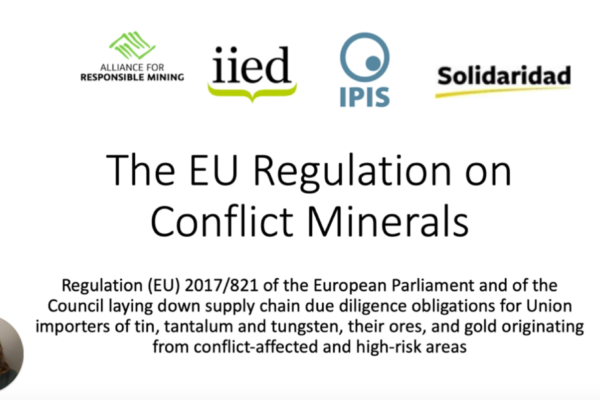
The relevance of the EU Conflict Minerals Regulation for 3TG producing countries
December 17, 2020The EU Conflict Minerals Regulation will come into force on January 1, 2021. From this date, European 3TG importers will need to carry out due diligence to identify, manage and report on risks in their supply chains. Concerned companies, the Member State Competent Authorities, the EU Commission and producing countries all need to make the necessary adjustments in the coming months. Civil Society O
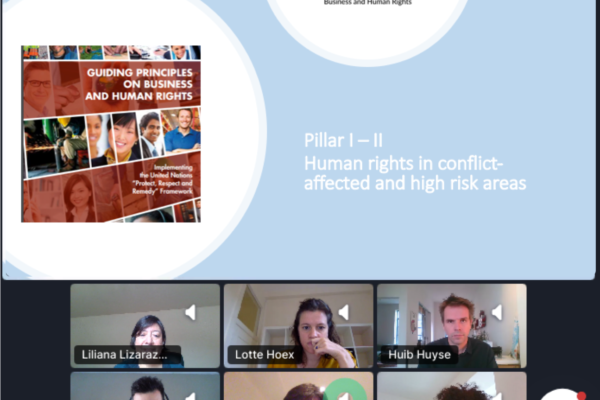
Intermediate findings on the Belgian National Baseline Assessment on Business and Human Rights.
November 3, 2020On October 29th, researchers from the University of Antwerp, the University of Leuven and IPIS presented their intermediate findings on the Belgian National Baseline Assessment on Business and Human Rights (NBA) during a workshop of the Sustainable Development Goal Forum 2020.
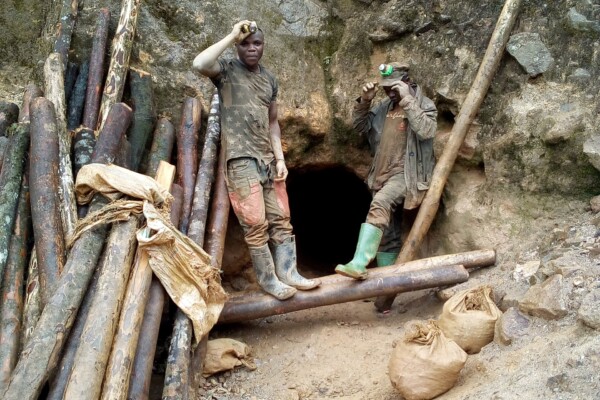
Due diligence series
September 14, 2020With its series on Due Diligence, IPIS informs its audience on responsible sourcing, its frameworks and how to apply them and the challenges and pitfalls in its implementation. Dates: 2019 – 2021 Research Programme(s): Business & Human Rights Funder(s): IcSP Activities: Desk Research Deliverable(s): Insights Project Coordinator Lotte Hoex Researcher & Policy Manager e-mail This is the preview of t
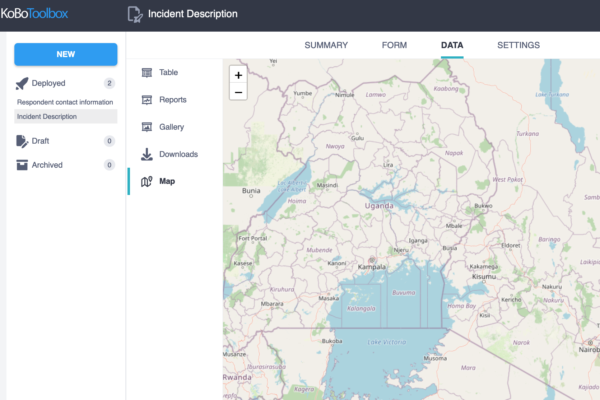
Monitoring human rights in Uganda via a CBHRIA methodology and mobile data collection tools
September 3, 2020Consultancy To empower community members to act upon their rights in the context of Uganda’s extractive industries, ASF and ANARDE aimed to use a community-based approach for assessing corporate human rights impacts. The objective of the project is to collect accurate and comprehensive data to monitor the enjoyment of human rights by rights-holders in two regions with active operations by extracti
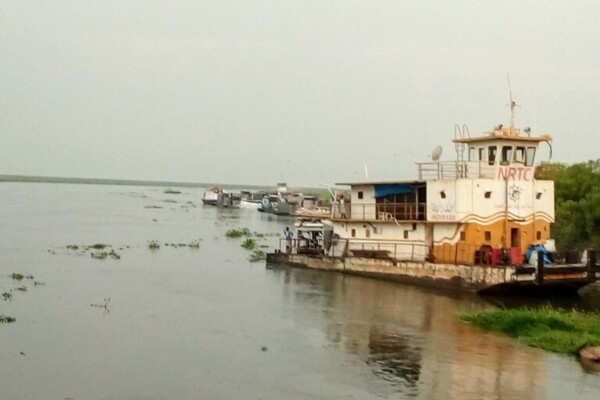
Annual Report 2019
August 26, 2020This 2019 annual report provides an overview of IPIS’ research projects, capacity enhancement and outreach activities throughout last year. Read the full activity report to see what IPIS has been up to in 2019.

